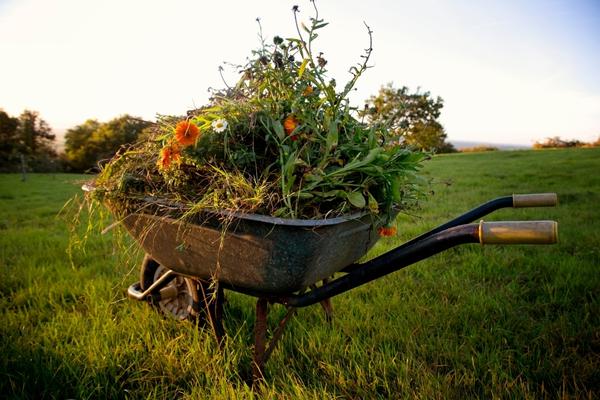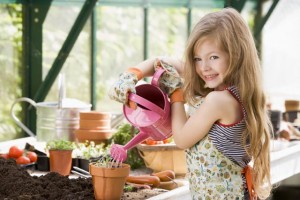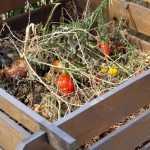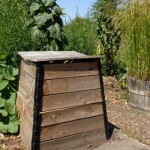
At home or school – get composting!
What is compost?
Compost forms as a result of the natural breakdown of organic material into fine particles by the bacteria, fungi, insects and animals which live in soil. As these organisms break down the waste, they generate heat, which is why compost heaps often feel warm and can sometimes even be seen steaming in cold weather.
Why do it?
Composting is nature’s own method of both waste disposal and soil fertilisation. Once made, compost can be used to fertilise soil and to give it a better structure and moisture retaining properties. It can also be used as a mulch in order to reduce the growth of weeds.
Composting is a good way of reducing pressure on our already over-worked landfill sites. Roughly 11 million tonnes of organic material (such as vegetable peelings, tea bags and food scraps) are produced each year by homes in the U.K., much of which ends buried in landfill sites. Organic materials in landfill are a major source of methane, a greenhouse gas 20 times more active than CFCs in causing global warming, and also of a black liquid called ‘leachate’, which can contaminate water supplies.
Because it is an alternative to peat, the use of compost can also help to prevent damage to the peat bogs which are vitally important homes for a wide range of wildlife.
Where to compost
For those good with their hands, perfectly satisfactory compost bins can be built from scrap timber, old tyres, bricks or wire mesh. However there are now numerous compost bins and other similar containers on the market. A number of commercial sources of compost bins are listed towards the bottom of this page but first try contacting your local council who may be able to provide you with a compost bin either free of charge or at a reduced price.
As a general rule, the bigger the bin the more efficient it will be. The best place to site a compost bin is in a sunny, well drained area, out of the wind. Put your composter in the garden on bare soil and not on paving or decking.
What to use to make compost
You can use a whole range of things to make compost: garden waste (e.g. fallen leaves, grass cuttings and prunings) and kitchen waste (including raw vegetables and fruit, crushed eggshells, tea & tea bags) are the most common ingredients but why not also try:
- shredded paper and cardboard
- chopped straw and hay e.g. animal bedding
- human hair and animal fur
In the majority of situations, weeds and seeds can be put on compost heaps as they will be killed by the heat produced during the breaking down process.
Do not however add any of the following to your compost heap as they will either not break down properly, or may be unhygienic or attractive to pests.
- cooked foods
- meat, fish or dairy products
- ash from coal fires
- dog or cat poo
- nappies or used tissues
How to make compost
Add the compost ingredients to the compost bin or heap, mixing the different types of materials together with a garden fork as you do so.
 Compost usually takes between 6 and 9 months to make, although it can take longer than this, especially in cold weather. You can speed up the process by:
Compost usually takes between 6 and 9 months to make, although it can take longer than this, especially in cold weather. You can speed up the process by:
- chopping up or shredding tough stems or prunings
- adding soil, finished compost or a compost accelerator
- turning the heap with a garden fork from time to time
- occasionally adding a little crumpled newspaper
- keeping the compost warm and moist (but not wet)
Your compost is ready when it is dark in colour and has an earthy smell. When the compost appears to be ready, take some from the bottom of the pile, put it on your garden and watch those plants grow!
West Sussex County Council have been offering highly discounted composters, Green Cones and Green Johannas. To learn about the costs and how to order one visit http://www.wsussex.getcomposting.com/



